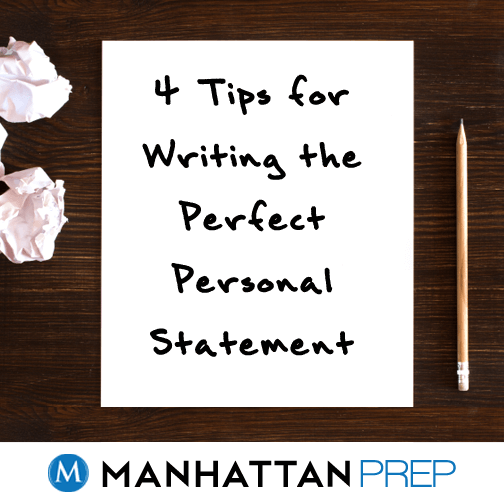4 Tips for Writing the Perfect Personal Statement
 It’s that time of year—personal statement time. Whether you’re in the brainstorming, drafting or revising stage, there are some great rules of thumb when it comes to writing your law school personal statement, rules that can help you stay on track to submitting a dazzling one.
It’s that time of year—personal statement time. Whether you’re in the brainstorming, drafting or revising stage, there are some great rules of thumb when it comes to writing your law school personal statement, rules that can help you stay on track to submitting a dazzling one.
Over at jdMission, I’ve been reviewing actual personal statements each week, highlighting their strengths and weaknesses, and discussing what lessons can be learned from them. Here are the most recent tips for making your personal statement sparkle, with links to the essays and reviews if you want to read more!
1. Tie the pieces of your story together.
A good personal statement has a narrative. You best convey who you are through story, and you choose to include certain stories because they say something about who you are—something significant. They illustrate the quality or qualities that you want the admissions committee to know about you. If stories don’t do this, well, they don’t belong in your essay. Odds are, you tell more than one story in your essay. You tell a few. They may or may not be in chronological order, but it is essential that they fit together, that collectively, they support what you are trying to say. If a story seems like it isn’t adding much or doesn’t fit, consider cutting it, or ask yourself if you can tell the story differently so that it is a better thematic fit. Read an example essay and review here.
2. In the climax of your essay (the big transition), avoid vagueness. Use concrete language instead.
If you are going to walk the reader through a rough patch in your life in order to demonstrate how you came out on the other side of it stronger, GREAT! Transition stories can be very powerful. They also, in order to be well told, need to zoom in on the moment of transition; it isn’t a part you can breeze over or tell from a bird’s eye view. For example, if you are writing that financial stress caused by a foreclosure in which you didn’t have an attorney drove you to illness, don’t say that you “experienced hardship” or that it “took a toll” on your health. What was the hardship? What was the toll? Specific, concrete details give transition moments their power. Read an example essay and review here.
3. Avoid bad beginnings and generalities.
I know this one is a generality (what’s a “bad beginning?”), but see why it’s so problematic? It’s hard to know what to do with it! One beginning that I would call categorically “bad” is the one that starts with you apologizing for who you are. Maybe it concerns you that the admissions committee wouldn’t want to admit someone who didn’t go to a liberal arts college and has worked her whole life to become a ballet dancer, and that’s a reasonable concern; you will need to demonstrate that you are up to the rigors of graduate-level academic work. Do not, however, begin your essay with, “I know you probably don’t think I can handle law school, being a dancer and all…” Start with the positive, with reasons why you should be admitted. Draw their attention to what about you makes you worth admitting, not to your weak spots. Read an example essay and review here.
4. Although your essay may be 90% there, the 10% may be most important.
Sometimes, I will read an essay that is so compelling, so well-written and engaging and believable and uplifting, that I forget I’m reading a personal statement. This sounds ideal, right? It would seem you should aspire to give this experience to the admissions officer who reviews your application. Yes, that is true, but: It can still fail in an essential way, even if it’s that good. It must still connect the dots between the Most Amazing Story Of All Time and why you’re a good fit for law school. I may not be able to put down The Hunger Games, but if I read it as part of Katniss’s law school application, I’d finish it thinking, “That was great!” and then I’d pause. “Oh…wait, why is she applying to law school?” Don’t forget what you writing, and why you’re writing it. Read an example essay and review here.